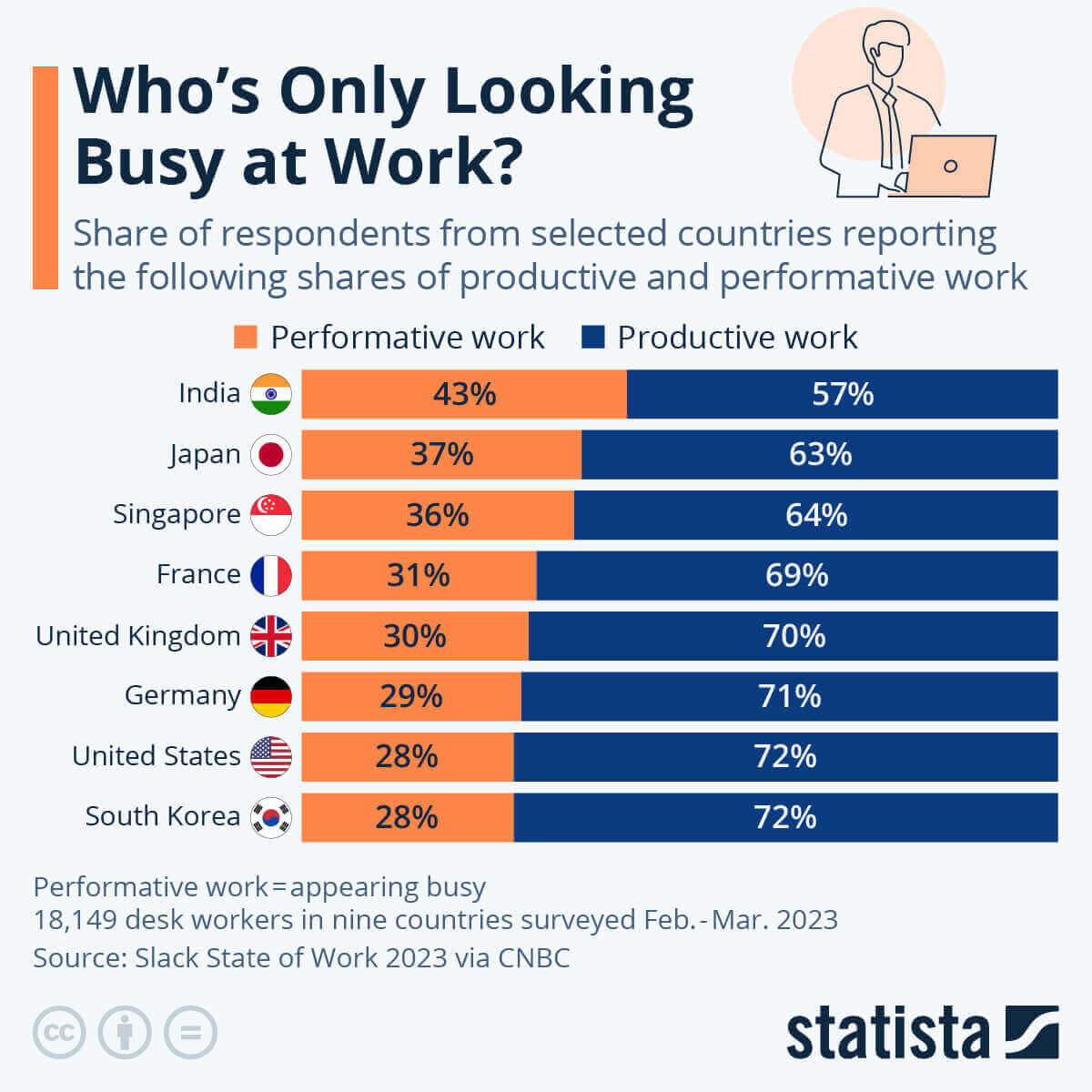Forget being productive. The truly important thing, as any retail middle manager will tell you, is to look productive.
Now, a new survey of nine different countries has logged the time spent at work doing performative work and compared it against the time spent on real work.
The result: A look under the hood at which countries support a workplace culture that emphasizes surface-level busy-ness rather than one about getting down to business.

India, Japan, and Singapore Prioritize Performative Work
Workers in India self-reported the most time spent on performative work (an average of 43%) rather than productive work (57% of their time).
Data from the survey, which polled more than 18,000 desk workers across February and March of this year, recently debuted in Slack’s State of Work 2023 report.
 This just in! View
This just in! View
the top business tech deals for 2026 👨💻
The two most productive countries were US and South Korea, which both reported the same ratio of time wasted vs time well-spent: 28% to 72%.
What’s Keeping Us From Peak Productivity?
Slack’s report didn’t stop there. Respondents who said their productivity has been dropping listed four different main reasons why they weren’t getting as much done. They might:
- Experience too many unnecessary meetings and emails (70% say that fewer meetings and emails would improve their productivity)
- Feel unsupported by their managers and disconnected from their colleagues
- Lack access to effective tools and technology
- Grapple with information silos and switching between disconnected apps
Connecting with your employees and helping them cut down on meetings might go a long way towards boosting real productivity.
And, since meetings are the biggest issue, reducing unneeded meetings with the right web conferencing software could be a huge help as well.
Is a “Return to the Office” Encouraging Performative Work?
Remote work thrived when the Covid-19 pandemic hit in 2020, but bosses have been pushing for a return to the office every since.
In 2023, that retrenchment towards physical office jobs is in full swing, with the list of companies that have reversed their flexible remote work policies packed with big names, from Starbucks and General Motors to Disney, Walmart, Amazon, and Meta.
But has it helped productivity? Last year, we reported that US productivity rates had fallen by the sharpest rate since 1947, following a record growth in 2021.
And earlier this month, Amazon’s SVP of Amazon Video and Studios Mike Hopkins said he had “no data either way” to justify the company’s in-office work mandate. Even more recently, a study this week found that 80% of employers say they regret rushing the return-to-office push.
Perhaps remote work can help emphasize actual results, and help the US continue to resist the siren call for performative work.




